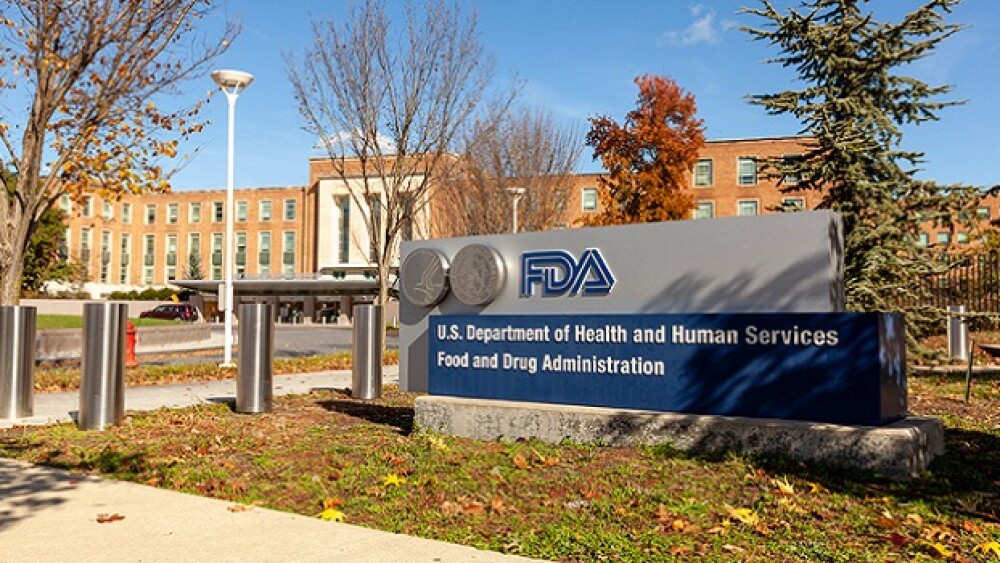New data from the AZD7442 COVID-19 PROVENT prevention and TACKLE outpatient treatment Phase III trials both showed robust efficacy from a one-time intramuscular (IM) dose of the long-acting antibody (LAAB) combination.
| MISSISSAUGA, ON, Nov. 18, 2021 /CNW/ - New data from the AZD7442 COVID-19 PROVENT prevention and TACKLE outpatient treatment Phase III trials both showed robust efficacy from a one-time intramuscular (IM) dose of the long-acting antibody (LAAB) combination. In an analysis of the ongoing PROVENT trial evaluating a median six months of participant follow-up, one 300mg IM dose of AZD7442 reduced the risk of developing symptomatic COVID-19 compared to placebo by 83%. About 2% of the global population is considered at increased risk of an inadequate response to a COVID-19 vaccine.1 This includes people with blood cancers or other cancers being treated with chemotherapy, patients on dialysis, those taking medications after an organ transplant or who are taking immunosuppressive drugs for conditions, including multiple sclerosis and rheumatoid arthritis.2-6 “The fight against COVID-19 is far from over, particularly for those who aren’t able to reach the same protective response following vaccination,” said Kiersten Combs, President, AstraZeneca Canada. “As part of AstraZeneca’s ongoing commitment to tackling this global health crisis, we are proud to see these latest results from the PROVENT and TACKLE trials as the data shows promise for offering additional protection to vulnerable Canadian populations against COVID-19.” The AZD7442 PROVENT trial is the first Phase III trial prospectively designed to evaluate a monoclonal antibody for prevention of symptomatic COVID-19, with targeted inclusion of high-risk and immunocompromised participants. More than 75% of PROVENT participants at baseline had co-morbidities that put them at high risk for severe COVID-19 if they were to become infected, including people who are immunocompromised and may have a reduced immune response to vaccination. There were no cases of severe COVID-19 or COVID-19-related deaths in those treated with AZD7442 at either the primary or six-month analyses. In the placebo arm, there were two additional cases of severe COVID-19 at the six-month assessment, for a total of five cases of severe COVID-19 and two COVID-related deaths. An exploratory analysis of the TACKLE outpatient treatment trial, in patients with mild-to-moderate COVID-19, showed that one 600mg IM dose of AZD7442 reduced the risk of developing severe COVID-19 or death (from any cause) by 88% compared to placebo in patients who had been symptomatic for three days or less at the time of treatment. A total of 90% of participants enrolled in TACKLE were from populations at high risk of progression to severe COVID-19 if they became infected, including those with co-morbidities. In both PROVENT and TACKLE, AZD7442 was generally well tolerated. No new safety issues were identified in the six-month analysis of PROVENT. “These compelling results give me confidence that this long-acting antibody combination can provide my vulnerable patients with the long-lasting protection they urgently need to finally return to their everyday lives,” said Hugh Montgomery, Professor of Intensive Care Medicine at University College London, UK and AZD7442 principal investigator. “Importantly, six months of protection was maintained despite the surge of the Delta variant among these high-risk participants who may not respond adequately to vaccination.” “AZD7442 is the only long-acting antibody with Phase III data to demonstrate benefit in both prevention and treatment of COVID-19 with one dose,” said Dr. Alex Romanovschi, Vice President, Scientific Affairs, AstraZeneca Canada. “The trials have shown encouraging results for reducing the risk of developing symptomatic COVID-19 and for reducing the risk of developing severe COVID-19. We continue to work closely with Health Canada to accelerate review of the recent filing of AZD7442.” Earlier this month, AstraZeneca Canada announced that it had initiated a rolling review New Drug Submission with Health Canada for authorization of AZD7442 for prevention of symptomatic COVID-19, based on high-level results from the PROVENT Phase III trial. If granted, AZD7442 would be the first LAAB to receive Health Canada authorization for COVID-19 prevention. Full results from PROVENT and TACKLE will be submitted for publication in a peer-reviewed medical journal and presented at a forthcoming medical meeting. PROVENT The primary analysis reported on 20 August 2021 was based on 5,172 participants, with data cut-off 9 May 2021. The primary efficacy endpoint was the first case of any SARS-CoV-2 RT-PCR positive symptomatic illness occurring post dose prior to day 183. The six-month assessment was based on 4,991 participants, with data cut-off of 29 August 2021. Subjects will continue to be followed for 15 months. Participants who chose to leave the PROVENT trial at any point to get vaccinated were excluded from the primary and six-month efficacy analyses. Participants were adults 18 years-old and over who would benefit from prevention with the LAAB, defined as having increased risk for inadequate response to active immunization (predicted poor responders to vaccines or intolerant of vaccine) or having increased risk for SARS-CoV-2 infection, including those whose locations or circumstances put them at appreciable risk of exposure to the SARS-CoV-2 virus. Participants at the time of screening were unvaccinated and had a negative point-of-care SARS-CoV-2 serology test. Approximately 43% of participants were 60 years and over. In addition, more than 75% had baseline co-morbidities and other characteristics that are associated with an increased risk for severe COVID-19 should they become infected, including those with immunosuppressive disease or taking immunosuppressive medications, diabetes, severe obesity or cardiac disease, chronic obstructive pulmonary disease, chronic kidney and chronic liver disease. TACKLE Participants were adults 18 years-old and over who were non-hospitalized with mild-to-moderate COVID-19 and symptomatic for seven days or less. Participants had a documented laboratory-confirmed SARS-CoV-2 infection, as determined by a molecular test (antigen or nucleic acid) from any respiratory tract specimen (e.g., oropharyngeal, nasopharyngeal, or nasal swab or saliva) collected no more than three days prior to day one. The primary efficacy endpoint was the composite of either severe COVID-19 or death from any cause through day 29. Subjects will continue to be followed for 15 months. Approximately 13% of participants were 65 years and over. In addition, 90% had baseline co-morbidities and other characteristics that put them at high risk of progression to severe COVID-19, including cancer, diabetes, obesity, chronic lung disease or asthma, cardiovascular disease or immunosuppression. AZD7442 AZD7442 is also being studied as a potential treatment for hospitalized COVID-19 patients as part of the National Institute of Health’s ACTIV-3 trial and in an additional collaborator hospitalization treatment trial. In preclinical experiments, data show the LAABs were able to block the binding of the SARS-CoV-2 virus to host cells and protect against infection in cell and animal models of disease.13 Additional in vitro findings demonstrate AZD7442 neutralizes recent emergent SARS-CoV-2 viral variants, including the Delta and Mu variants.14 About AstraZeneca Canada
SOURCE AstraZeneca Canada Inc. | ||||||||||||||||||||||||||||||||




